In absence of awareness in India, mothers of Fragile X (FX) Syndrome-affected kids start rare medical activism.
For the first few minutes you wouldn’t even notice. Siddharth Lele plays Grand Theft Auto on his laptop like a mean racer, makes precariously stunning card castles and cooks authentic poha at his Pune house.
But as the 18-year-old opens up, you pick up the first signs of a problem from his scrambled speech. Siddharth suffers from the Fragile X (FX) Syndrome, the most common cause for inherited mental impairment like autism and retardation the world over. That is the bad news.
The good news is that Siddharth’s mother Sunita is one of a handful of mothers who have initiated an extraordinarily gritty campaign against a largely unknown but potent enemy which cripples one in 2,500 males and one in 5,000 females worldwide.
After she found out about her son’s condition, Sunita Lele stepped out of her homemaker boundaries, took up a special education course at SNDT five years ago, and went on to set up her own school for children with learning disabilities in Pune.
“FX children need individual attention. IQs and behavioural patterns differ from child to child and thus each one has to be handled differently,” she says.
Life is not easy for the FX children or their families. Extreme behaviour and hypersensitivity taint their everyday life. The whistle of the pressure cooker might be a roaring thunderstorm to their ears or warm water might burn like hot oil. Sheetal Kapadia (name changed) is the other affected mother who is working against the abysmally low awareness in India about Fragile X. Her son Vivek was fortunately diagnosed for FX at 18 months. So he can now speak crisp English, swim and go through most other activities fairly easily.
“When I discovered my child had FX, I found that there was little information available. I contacted the National Fragile X Foundation in the US and got some material. I became their resource head,” says Kapadia. Today, Sheetal heads the Society of Fragile X in India. She coordinates workshops and helps families deal with FX children. She is organising a three-day conference in January 2007 on Fragile X for the first time in India with professionals from the Medical Investigation of Neurodevelopmental Disorders (Mind) Institute. They are the global pioneers for Fragile X.
But a lack of awareness and facilities have ensured that FX children have suffered enough. There are cases of children who are 12 and still don’t speak. And people awareness apart, the greater obstacle is awareness among doctors.
Dr Vibha Krishnamurthy, developmental pediatrician at Jaslok Hospital says, “Peoples’ mindset is like a black hole. Greater awareness is needed. Fragile X syndrome is a growing concern. Despite typical symptoms and a genetic history, a boy was diagnosed for the first time with Fragile X by me at 18. I alone have 10-15 cases of Fragile X and I’m sure other pediatricians too have cases. The problem is that no one looks for Fragile X. What the mind does not know, the eye does not see.”
Kalpesh Patel from Baroda bears the burden of ignorant doctors. Both his 13-year-old daughter and 11-year-old son are Fragile X children. He laments, “Within eight months of my son’s birth we realised something was wrong. The same happened with my daughter, but doctors here couldn’t diagnose it. They said my children were mentally retarded. Here in Gujarat, there is no awareness, even the doctors don’t know of Fragile X. Only children who have gone to Mumbai or Delhi for examination have been diagnosed correctly.” They now study in a regular school where there is only one class which caters to children with any sort of learning disability.
Fragile X can be determined in the womb. But the test is strangely not prescribed by gynaecologists, even to those who have a history of mental illness in the family. Even if the syndrome is detected soon after birth, appropriate steps can be taken to rear the child. “Early detection in a child opens up a lot of options. They can lead relatively independent lives and can be trained in a vocation even. Though the test shouldn’t be compulsory for all pregnant women, it is necessary to consider family history and get the test done,” says Krishnamurthy.
There are not more than 10 known testing centres in India which can confirm Fragile X. Ironically, this test can be done free at the city’s Jaslok Hospital as part of a research programme, but few know about the facility.
Families of Fragile X children need counselling. Though both men and women can be carriers, it is predominantly the mothers who pass on the syndrome. This makes Krishnamurthy more cautious. “There is a lot of blame and guilt involved. Most times the family blames the mother or the woman spontaneously suffers from guilt. We have to be careful about the way we put it across to families and ensure that they are counselled to accept and deal with FX.”
![submenu-img]() DNA Explainer: Why was Iranian president Ebrahim Raisi, killed in helicopter crash, regarded as ‘Butcher of Tehran’?
DNA Explainer: Why was Iranian president Ebrahim Raisi, killed in helicopter crash, regarded as ‘Butcher of Tehran’?![submenu-img]() 1 dead, many injured after London-Singapore flight hit by severe...
1 dead, many injured after London-Singapore flight hit by severe...![submenu-img]() This film was based on iconic love story, actors and director died midway, was released incomplete 23 years later
This film was based on iconic love story, actors and director died midway, was released incomplete 23 years later![submenu-img]() Meet man who used to go medicine factory in childhood, now runs Rs 109000 crore pharma company, his net worth is...
Meet man who used to go medicine factory in childhood, now runs Rs 109000 crore pharma company, his net worth is...![submenu-img]() Akshay Kumar 'accidently' collided with RTO officer's bike in Bangkok, shares what happened next: 'I immediately...'
Akshay Kumar 'accidently' collided with RTO officer's bike in Bangkok, shares what happened next: 'I immediately...' ![submenu-img]() Maharashtra HSC 12th 2024: Result declared, know how to check
Maharashtra HSC 12th 2024: Result declared, know how to check![submenu-img]() Meet man who topped IIT-JEE, studied at IIT Bombay, then went to MIT, now is...
Meet man who topped IIT-JEE, studied at IIT Bombay, then went to MIT, now is...![submenu-img]() Meet man who once used to sell newspapers at 9, cracked UPSC exam, he is now…
Meet man who once used to sell newspapers at 9, cracked UPSC exam, he is now…![submenu-img]() Meet woman who secured high-paying job, not from IIT, IIM, VIT, her record-breaking package is...
Meet woman who secured high-paying job, not from IIT, IIM, VIT, her record-breaking package is...![submenu-img]() Maharashtra HSC Result 2024: Class 12th result to be released today, know time, steps to check
Maharashtra HSC Result 2024: Class 12th result to be released today, know time, steps to check![submenu-img]() DNA Verified: Is CAA an anti-Muslim law? Centre terms news report as 'misleading'
DNA Verified: Is CAA an anti-Muslim law? Centre terms news report as 'misleading'![submenu-img]() DNA Verified: Lok Sabha Elections 2024 to be held on April 19? Know truth behind viral message
DNA Verified: Lok Sabha Elections 2024 to be held on April 19? Know truth behind viral message![submenu-img]() DNA Verified: Modi govt giving students free laptops under 'One Student One Laptop' scheme? Know truth here
DNA Verified: Modi govt giving students free laptops under 'One Student One Laptop' scheme? Know truth here![submenu-img]() DNA Verified: Shah Rukh Khan denies reports of his role in release of India's naval officers from Qatar
DNA Verified: Shah Rukh Khan denies reports of his role in release of India's naval officers from Qatar![submenu-img]() DNA Verified: Is govt providing Rs 1.6 lakh benefit to girls under PM Ladli Laxmi Yojana? Know truth
DNA Verified: Is govt providing Rs 1.6 lakh benefit to girls under PM Ladli Laxmi Yojana? Know truth![submenu-img]() AI models show bikini style for perfect beach holiday this summer
AI models show bikini style for perfect beach holiday this summer![submenu-img]() Laapataa Ladies actress Chhaya Kadam ditches designer clothes, wears late mother's saree, nose ring on Cannes red carpet
Laapataa Ladies actress Chhaya Kadam ditches designer clothes, wears late mother's saree, nose ring on Cannes red carpet![submenu-img]() Urvashi Rautela mesmerises in blue celestial gown, her dancing fish necklace steals the limelight at Cannes 2024
Urvashi Rautela mesmerises in blue celestial gown, her dancing fish necklace steals the limelight at Cannes 2024![submenu-img]() Kiara Advani attends Women In Cinema Gala in dramatic ensemble, netizens say 'who designs these hideous dresses'
Kiara Advani attends Women In Cinema Gala in dramatic ensemble, netizens say 'who designs these hideous dresses'![submenu-img]() Influencer Diipa Büller-Khosla looks 'drop dead gorgeous' in metallic structured dress at Cannes 2024
Influencer Diipa Büller-Khosla looks 'drop dead gorgeous' in metallic structured dress at Cannes 2024![submenu-img]() DNA Explainer: Why was Iranian president Ebrahim Raisi, killed in helicopter crash, regarded as ‘Butcher of Tehran’?
DNA Explainer: Why was Iranian president Ebrahim Raisi, killed in helicopter crash, regarded as ‘Butcher of Tehran’?![submenu-img]() DNA Explainer: Why did deceased Iranian President Ebrahim Raisi wear black turban?
DNA Explainer: Why did deceased Iranian President Ebrahim Raisi wear black turban?![submenu-img]() Iran President Ebrahim Raisi's death: Will it impact gold, oil prices and stock markets?
Iran President Ebrahim Raisi's death: Will it impact gold, oil prices and stock markets?![submenu-img]() Haryana Political Crisis: Will 3 independent MLAs support withdrawal impact the present Nayab Saini led-BJP government?
Haryana Political Crisis: Will 3 independent MLAs support withdrawal impact the present Nayab Saini led-BJP government?![submenu-img]() DNA Explainer: Why Harvey Weinstein's rape conviction was overturned, will beleaguered Hollywood mogul get out of jail?
DNA Explainer: Why Harvey Weinstein's rape conviction was overturned, will beleaguered Hollywood mogul get out of jail?![submenu-img]() This film was based on iconic love story, actors and director died midway, was released incomplete 23 years later
This film was based on iconic love story, actors and director died midway, was released incomplete 23 years later![submenu-img]() Akshay Kumar 'accidently' collided with RTO officer's bike in Bangkok, shares what happened next: 'I immediately...'
Akshay Kumar 'accidently' collided with RTO officer's bike in Bangkok, shares what happened next: 'I immediately...' ![submenu-img]() Meet man, his grandfather founded political party, uncle was CM, he ditched it for Bollywood, worked for Bhansali, now..
Meet man, his grandfather founded political party, uncle was CM, he ditched it for Bollywood, worked for Bhansali, now..![submenu-img]() Meet actor who worked with SRK, Salman, Sushmita, gave many flop films, quit acting, married granddaughter of CM..
Meet actor who worked with SRK, Salman, Sushmita, gave many flop films, quit acting, married granddaughter of CM..![submenu-img]() 'Pregnant for sure': Katrina Kaif, Vicky Kaushal's viral video from London sparks pregnancy speculations
'Pregnant for sure': Katrina Kaif, Vicky Kaushal's viral video from London sparks pregnancy speculations ![submenu-img]() Viral video: Bride makes dramatic entrance from giant ice cube at snowy Alpine wedding in Switzerland
Viral video: Bride makes dramatic entrance from giant ice cube at snowy Alpine wedding in Switzerland![submenu-img]() Elephant lifts safari truck with tourists in shocking viral video, watch
Elephant lifts safari truck with tourists in shocking viral video, watch![submenu-img]() In another gaffe, Joe Biden says he was US 'Vice President' during COVID-19 pandemic, watch viral video
In another gaffe, Joe Biden says he was US 'Vice President' during COVID-19 pandemic, watch viral video![submenu-img]() Meet Nihar Thackeray, lesser-known nephew of Uddhav Thackeray, he is Eknath Shinde's...
Meet Nihar Thackeray, lesser-known nephew of Uddhav Thackeray, he is Eknath Shinde's...![submenu-img]() Heroic buffalo herd rescues one of their own from lion ambush, video is viral
Heroic buffalo herd rescues one of their own from lion ambush, video is viral



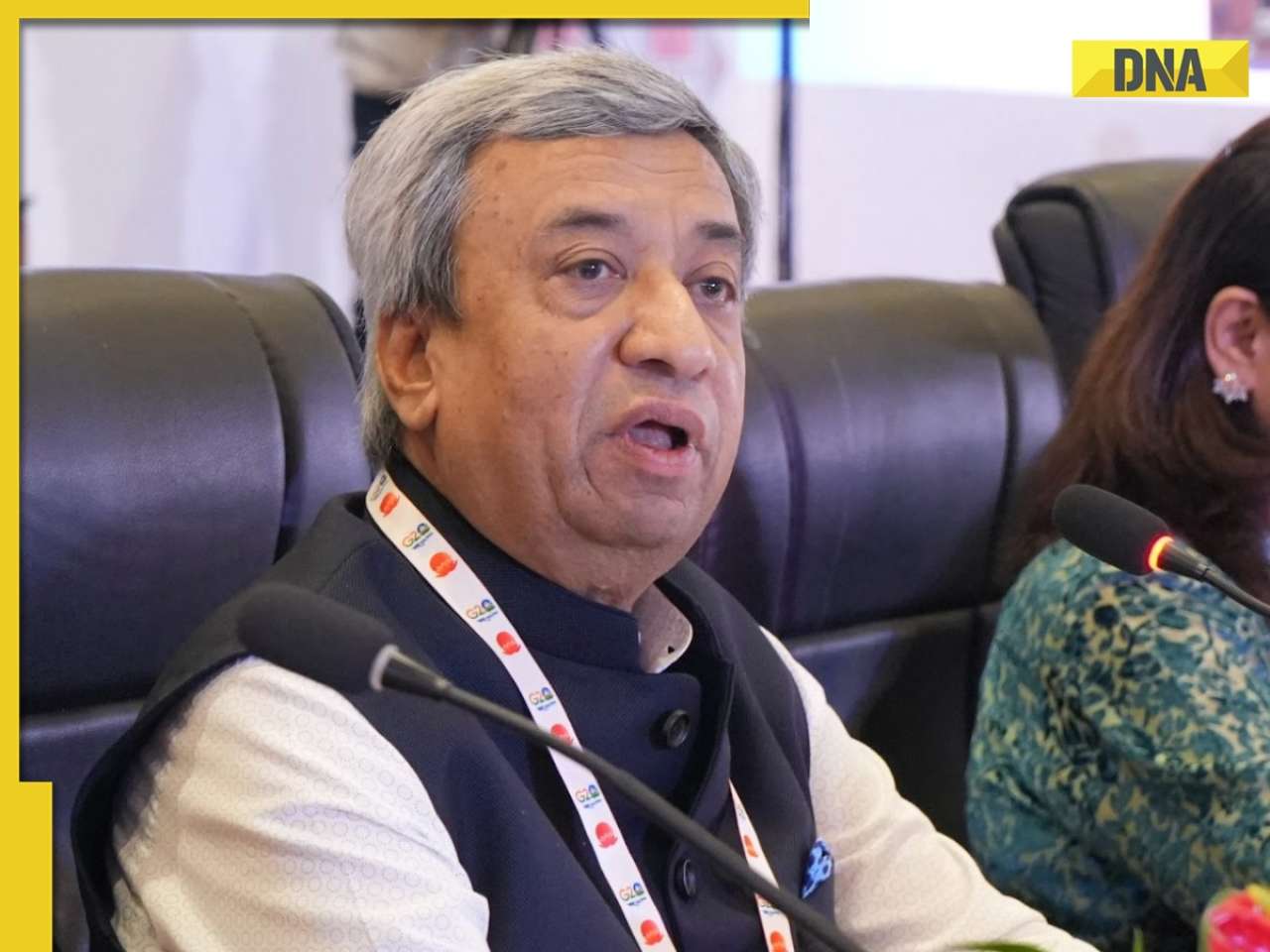




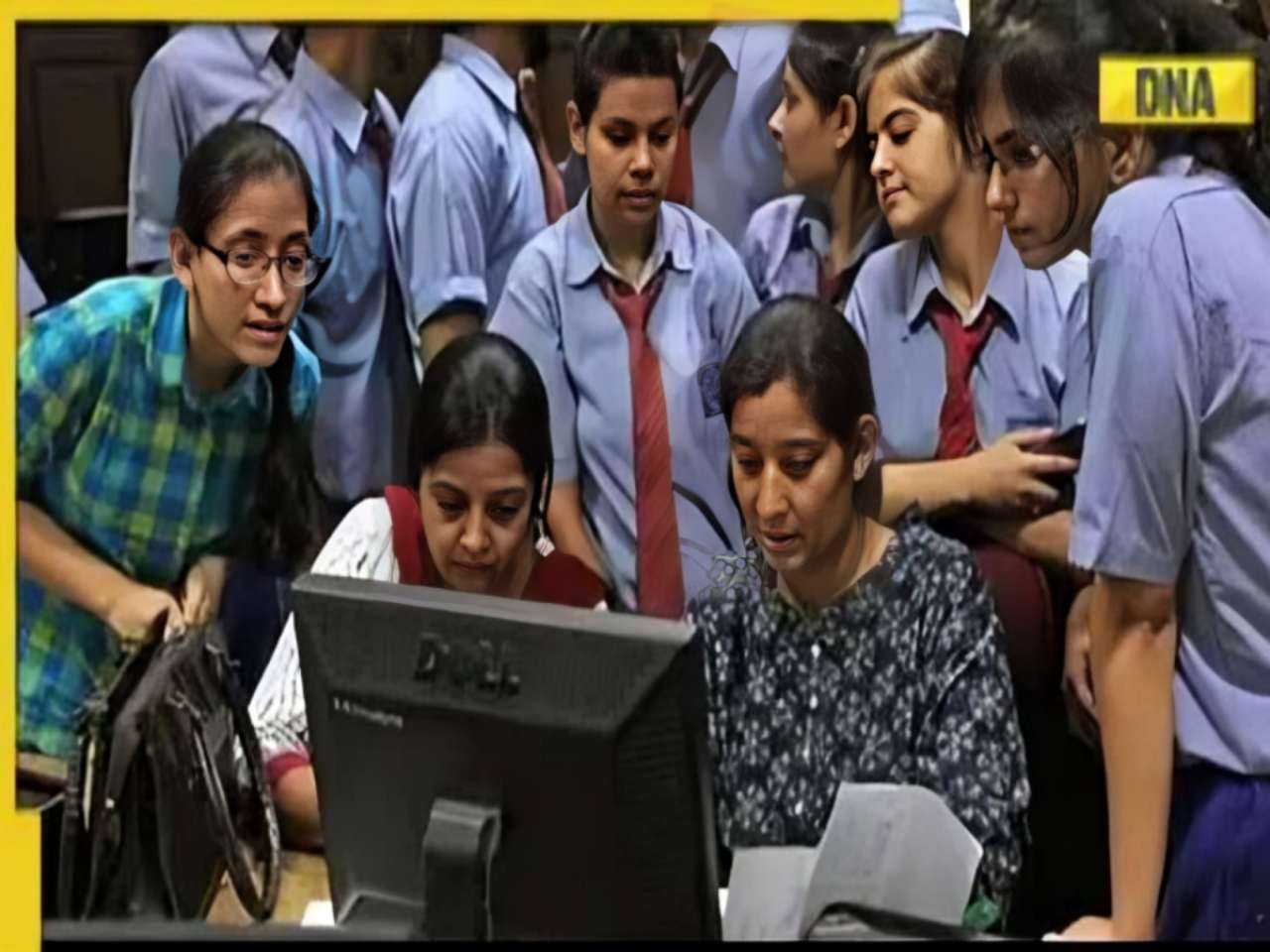
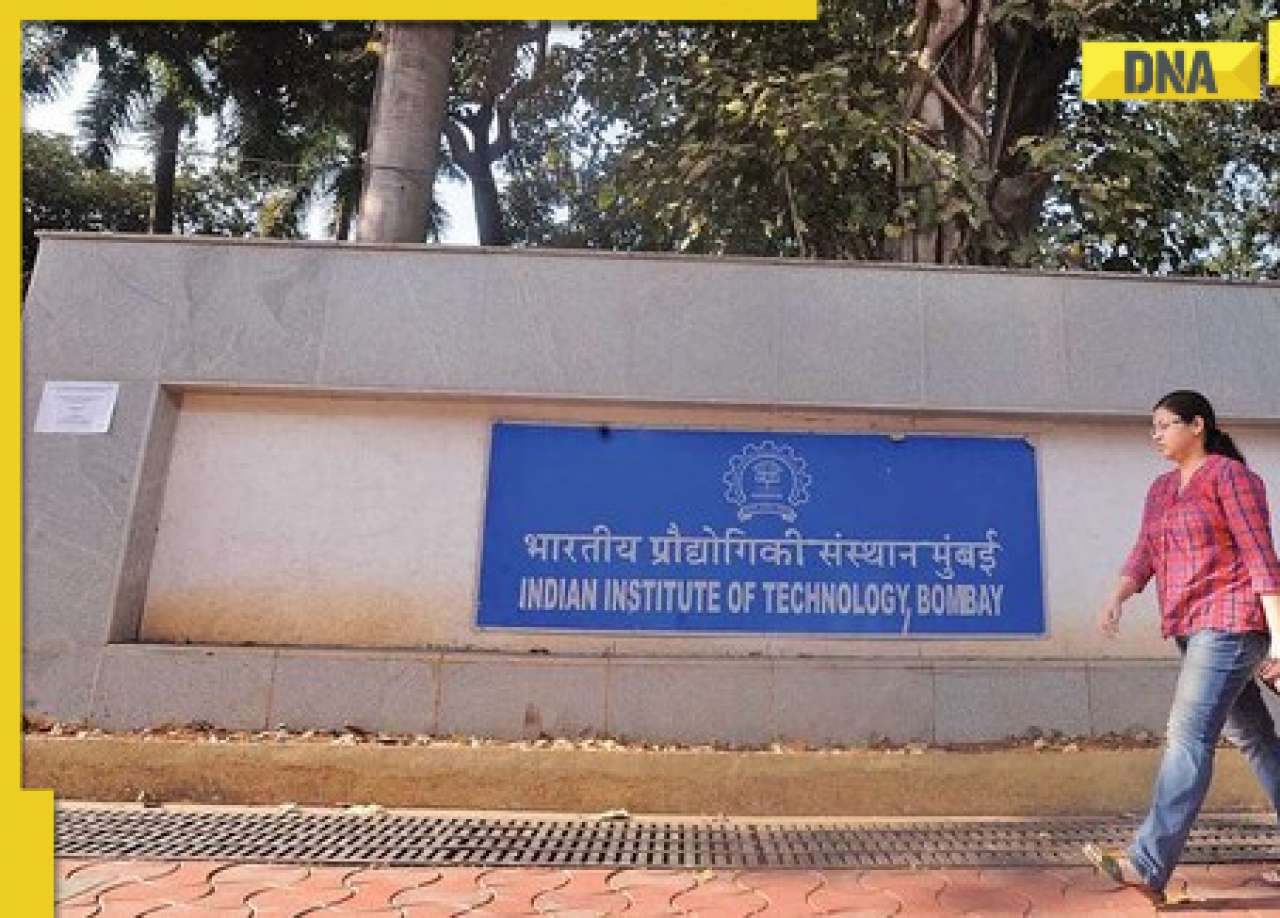
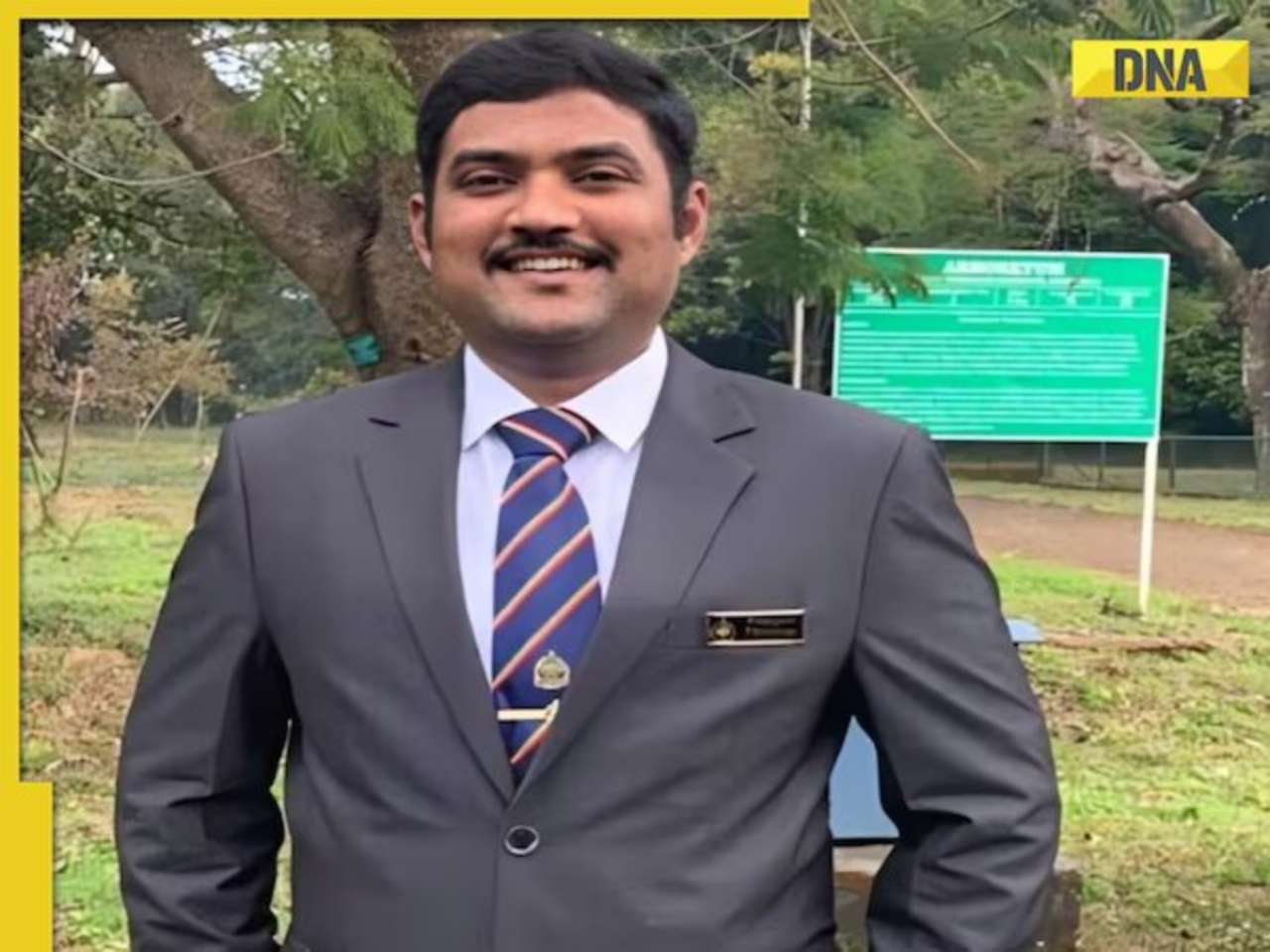
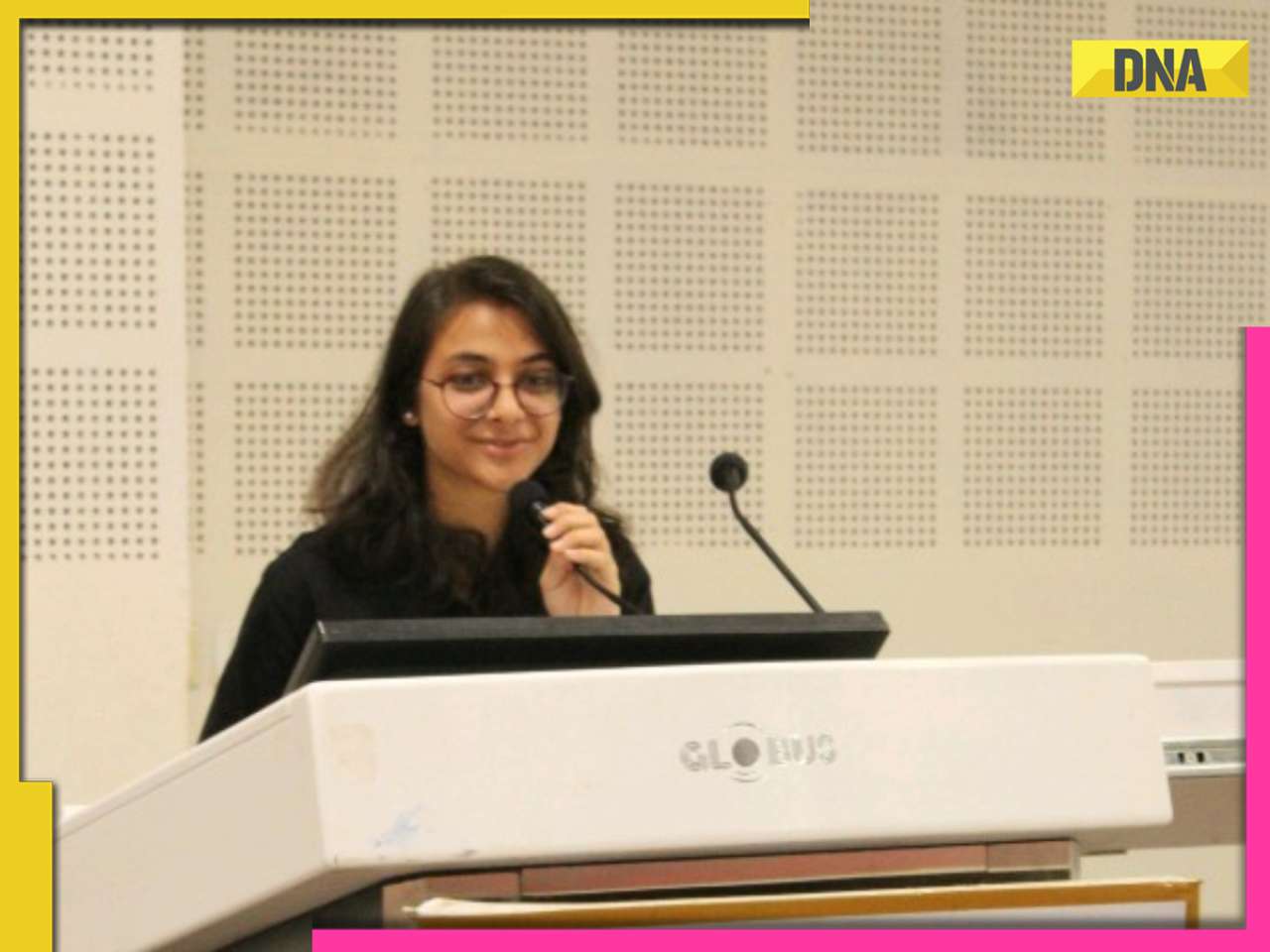
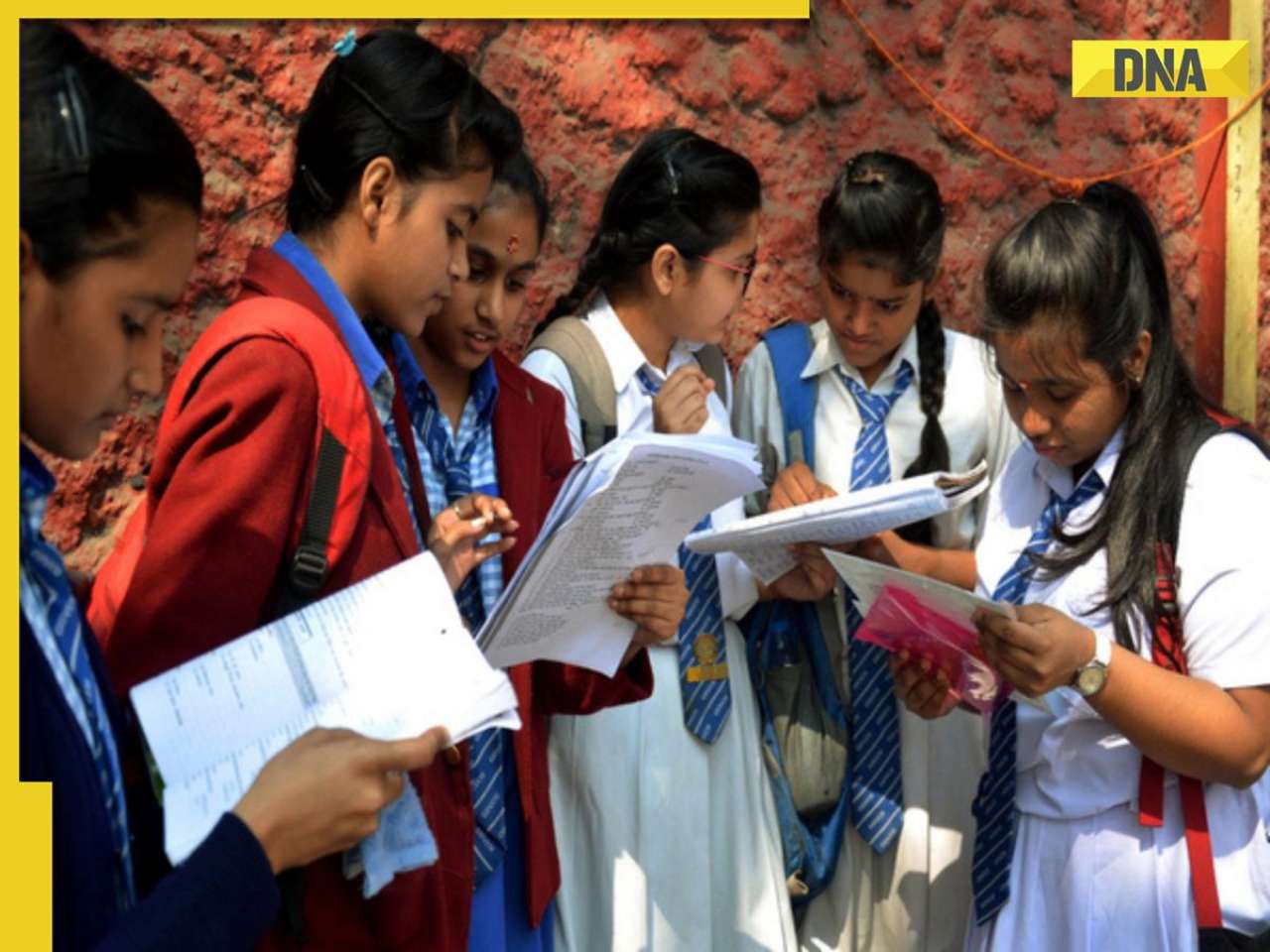






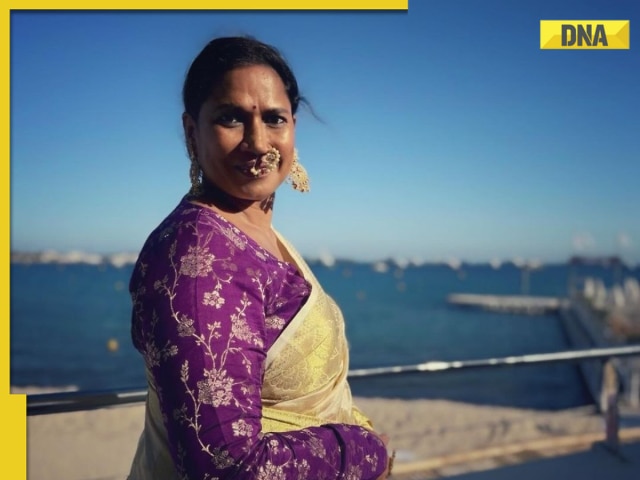













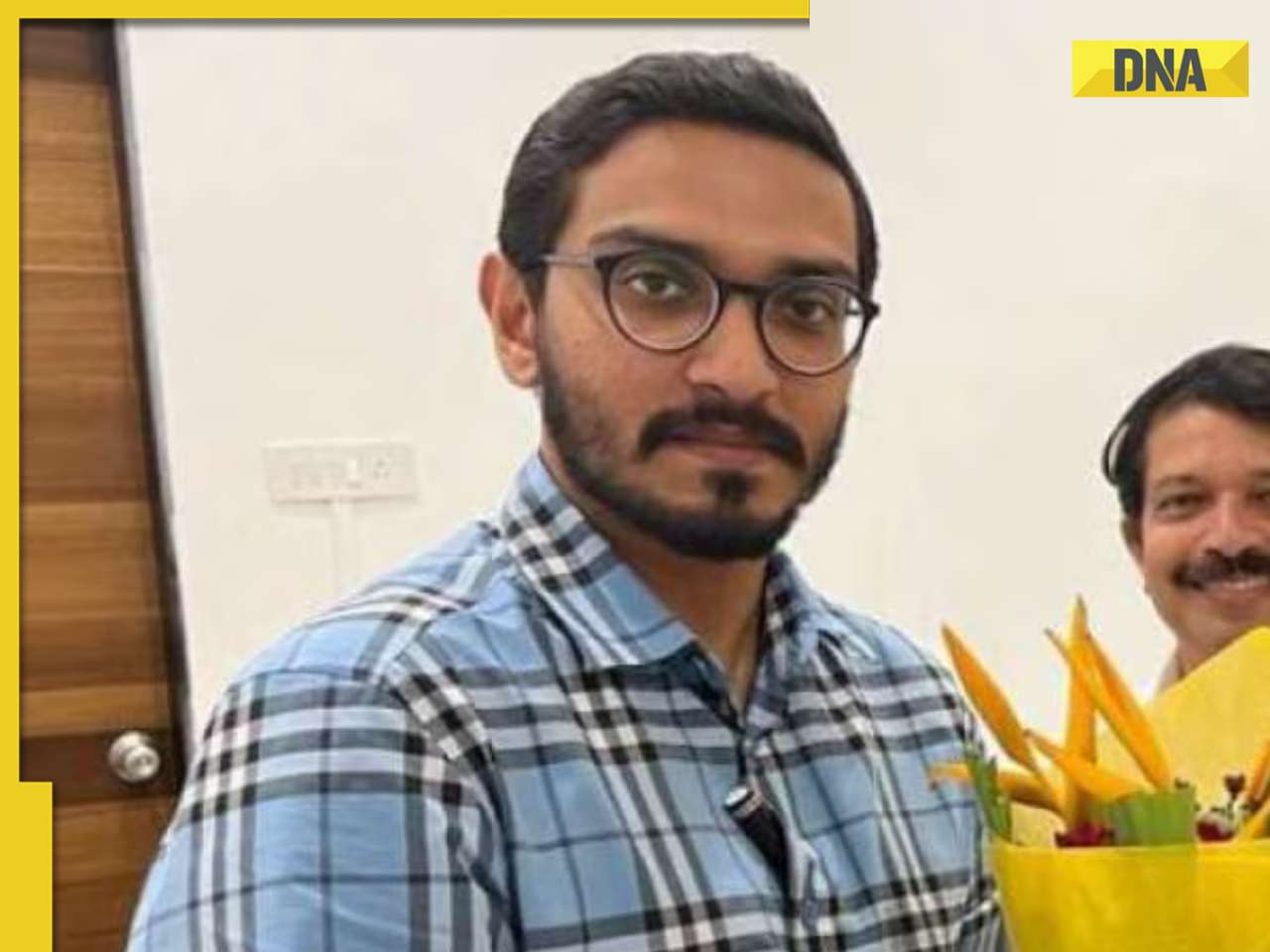









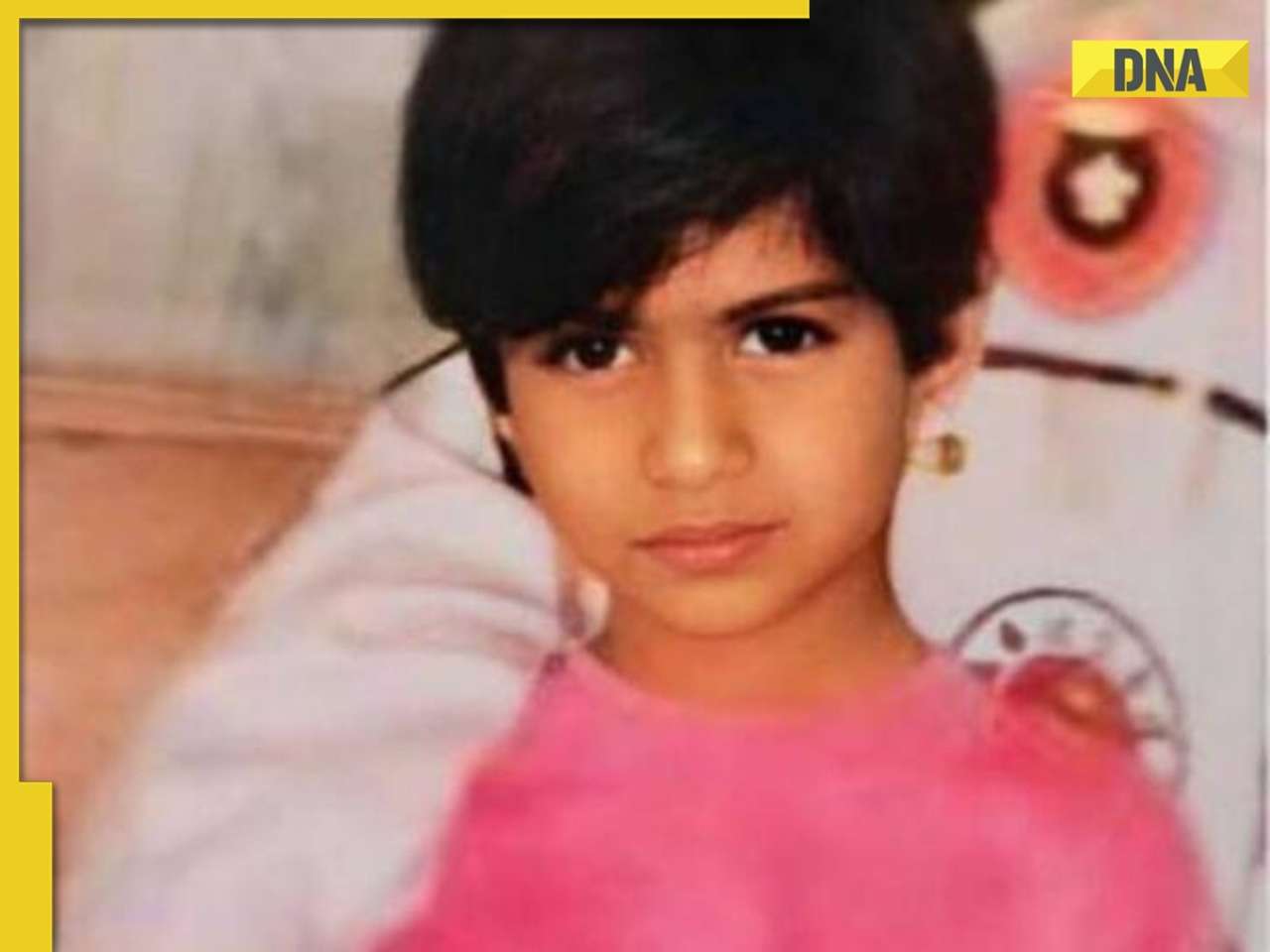











)
)
)
)
)
)